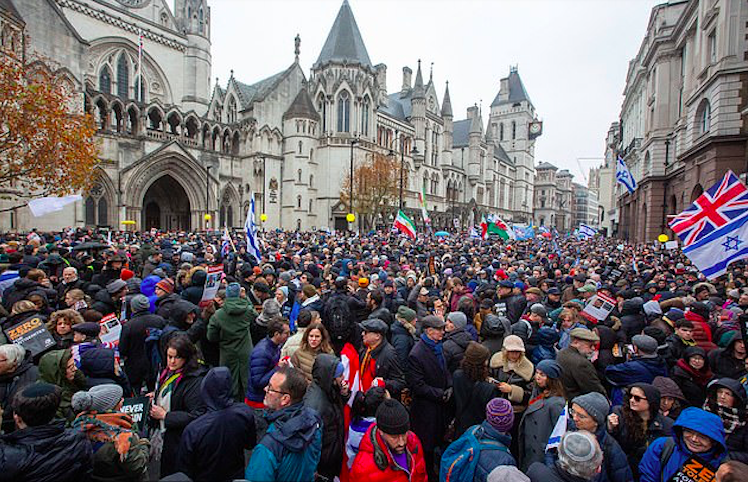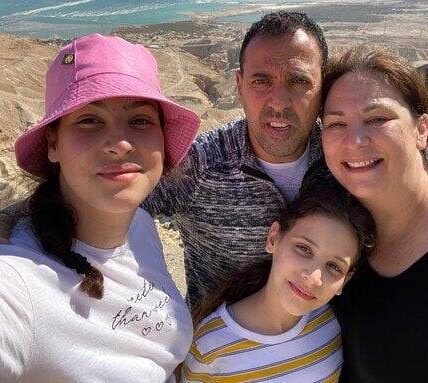Antisemitism, a long-standing stain on British society, has experienced a chilling resurgence in the past year, reaching levels unseen in decades. This alarming trend has cast a shadow over the UK, raising urgent concerns about the safety and security of Jewish communities and the very fabric of social cohesion.
The Main Points
The Community Security Trust (CST), a leading organization monitoring antisemitism in the UK, paints a stark picture. 2023 witnessed a staggering 4,103 antisemitic incidents, marking a 147% increase from 2022 and surpassing the previous record set in 2021. This translates to an average of 31 incidents per day, a grim reminder of the pervasiveness of antisemitic sentiment.
The forms of this hatred are diverse and disturbing:
- Assaults: A worrying 96% increase from 2022, marking the highest annual number ever recorded.
- Verbal and online abuse: Hateful language targeting individuals or the Jewish community at large, often spreading unchecked on social media platforms.
- Damage to property: Vandalism of synagogues, cemeteries, and other Jewish structures, serving as a physical manifestation of intolerance.
- Threats and intimidation: Attempts to instil fear and anxiety within the Jewish community, eroding their sense of security and belonging.
Fuelling the Fire
Several factors have converged to create this dangerous environment:
- The Israeli-Palestinian conflict: Escalation in October 2023 saw antisemitic rhetoric often conflated with criticism of Israel, leading to a spike in attacks.
- Online hate speech: Social media platforms struggle to effectively moderate hateful content, allowing antisemitic views to fester and spread unchecked.
- Conspiracy theories: Baseless allegations targeting Jewish people gain traction in certain circles, contributing to an atmosphere of suspicion and hostility.
- Political discourse: Inflammatory language from some public figures emboldens prejudice and can normalize antisemitic narratives.
What are We Doing About it?
A CST spokesperson told NSN that the organisation has been running security operations for several years, including patrolling streets to identify and stop suspicious and antisemitic behaviour, serving a counter-terrorism function as well.
CST’s patrols involve professional security operatives and volunteers who receive special training prior to being deployed.
The spokesperson said their security operations had seen a marked rise in hate crime and verbal abuse since October 2023, and praised local police forces for their unwavering support in light of the newest surge in attacks.
CST explained the police increased their presence in Jewish communities after the October 2023 attacks by Hamas and Israel’s subsequent retaliation, and have worked closely with CST’s security patrols to ensure swift and successful prosecutions of criminals targeting Jewish communities.
CST’s spokesperson also praised the government for its financial support. CST has been receiving a £15 million yearly government grant for several years to pay for private security. After the October 2023 attacks, the government gave an extra £3 million to pay for additional security.
What can we do about it?
CST’s spokesperson emphasized that we need leaders to step up and educate their communities, tackling antisemitism in a public manner, and shaming those who spout antisemitic sentiment.
But addressing this challenge is complicated and requires a comprehensive and approach:
- Stronger law enforcement: Swift and effective action against perpetrators is crucial to deterring further attacks and ensuring accountability.
- Education and awareness: Promoting understanding and respect for all communities through educational initiatives can dismantle harmful stereotypes and foster empathy.
- Social media accountability: Platforms must be held responsible for effectively moderating hateful content and creating a safer online environment.
- Community support: Providing resources and assistance to the Jewish community is essential to ensure their safety and well-being.
Beyond the Numbers:Antisemitism is not just a statistical anomaly; it represents a deeply concerning social ill. It is a reminder that intolerance and prejudice can easily take root, and that vigilance and collective action are necessary to combat them. We must acknowledge the severity of this issue, addressing its root causes, and working together to build a more inclusive society.

























































































































































































































































































